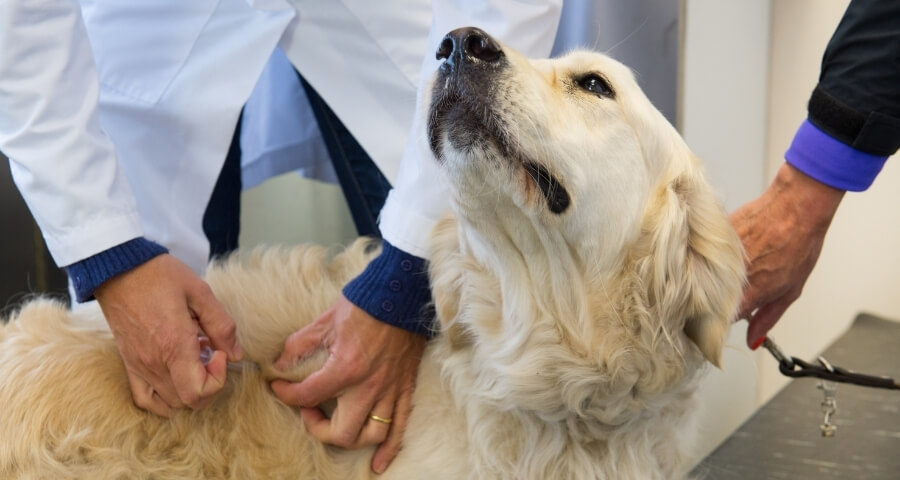Why vaccinations are vital
Before you take your four-legged family member out and about for summer adventures, it’s important to keep them protected from common diseases by ensuring their vaccinations are up-to-date!
In Australia, dogs should be vaccinated as a minimum with the C3 vaccination – this protects against parvovirus, distemper and hepatitis. Most dogs also require protection against kennel cough. Depending on your dog’s particular lifestyle and the area you live in, we may additionally recommend that they are vaccinated against leptospirosis.
Cats are recommended to receive at least the F3 vaccination – this helps protect them against cat flu and feline panleukopaenia. Depending on your kitty’s lifestyle, they may also need to be vaccinated against FIV (feline immunodeficiency virus) and FeLV (feline leukaemia virus).
Sadly, we occasionally see cases of these particular diseases, with the vast majority occurring in unvaccinated pets. Episodes of these illnesses generally require at least a veterinary consultation and treatment to get your pet feeling well again, so to avoid this, just ensure that your pet is always up to date with their vaccinations.
Unfortunately, some of these diseases (such as parvovirus) can require your pet to have intensive care treatment in the vet hospital, and sometimes these diseases can even be fatal, especially in puppies, kittens or older animals.
Every puppy and kitten should receive a primary course of vaccinations (usually three separate vaccines between about four weeks apart), followed by their first adult vaccination one year later.
Thereafter, it’s best for your pet to have a health check annually, where our vets can assess your pet’s general health and discuss which vaccines are required each year to maintain their protection. Dogs or cats that go into daycare or boarding are generally always required to be up-to-date with annual vaccines.
If you are unsure whether your pet is up-to-date with their vaccines, ask our friendly team for advice!

